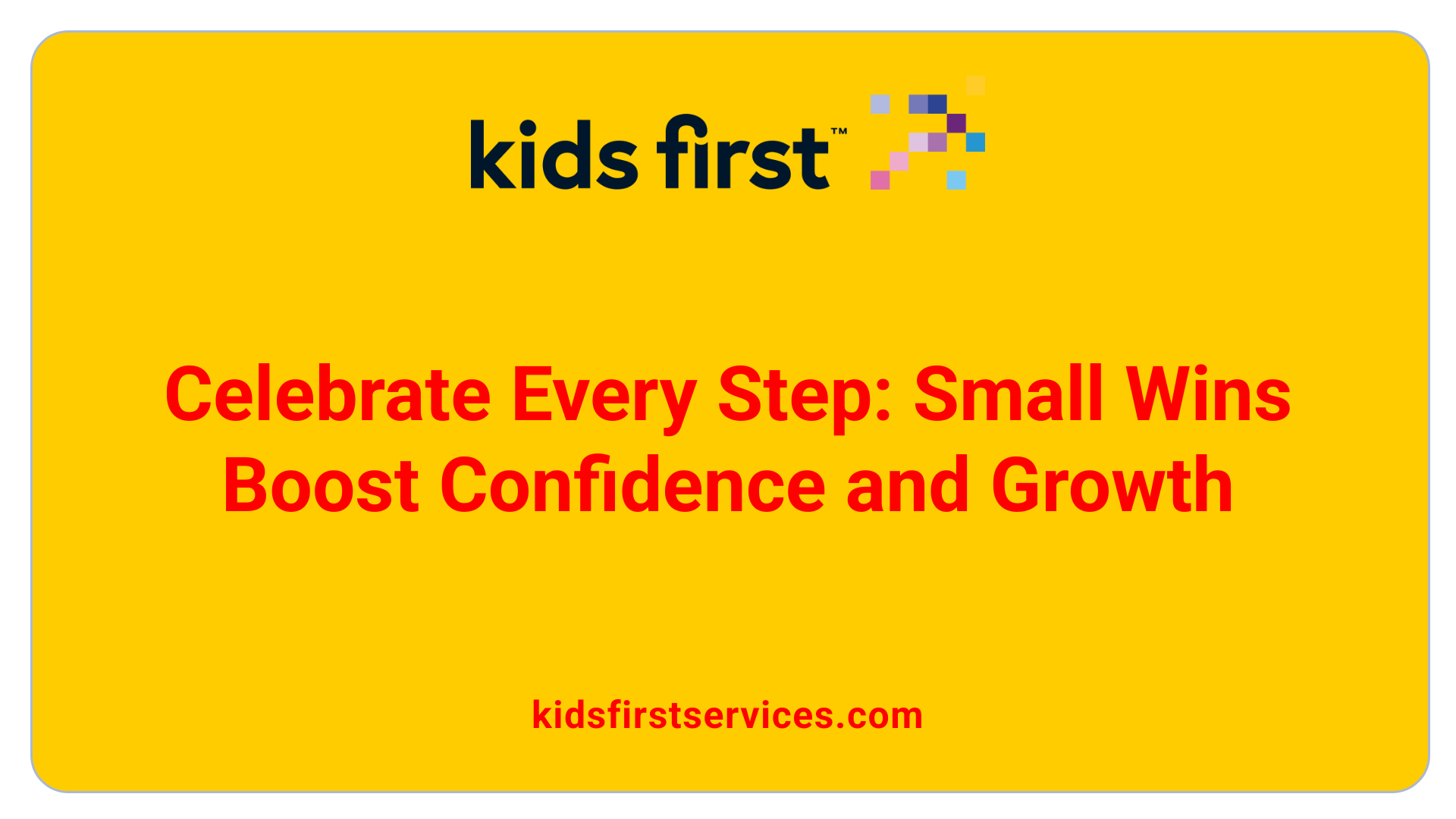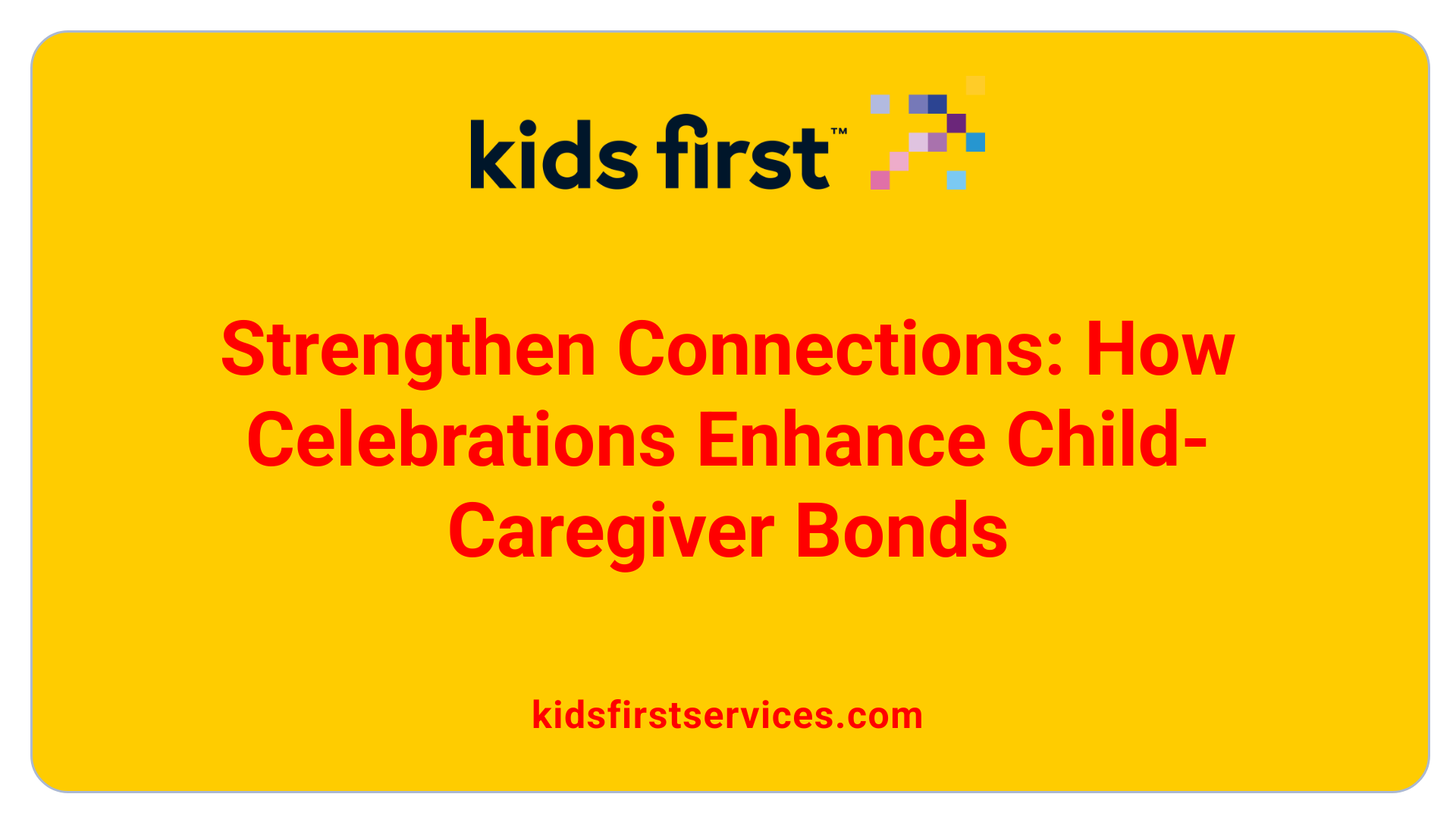
How to Celebrate Small Wins in Your Child’s Development
Celebrating Every Step: Fostering Growth and Confidence in Children
Understanding the Power of Small Wins in Child Development
Children’s development is a journey filled with milestones, from physical achievements to social and emotional growth. Recognizing and celebrating these small wins is vital for nurturing confidence, resilience, and a love for learning. This article explores effective strategies to make small victories meaningful, and how such celebrations can strengthen bonds between children and their caregivers.
Why Celebrating Small Milestones Matters

Why is recognizing and celebrating small developmental milestones important?
Recognizing and celebrating small developmental milestones plays a crucial role in nurturing a child's growth. When parents, educators, and caregivers acknowledge even minor achievements—such as zipping a coat, recognizing letters, or making new friends—the child feels seen and valued. This builds their confidence and self-esteem, encouraging them to keep trying and learning.
Celebrations can be simple, like giving a high-five, creating a milestone chart, or sharing their success with family. These positive feedback loops foster motivation and reinforce the child's effort, rather than just outcomes. Such recognition helps make learning fun and meaningful, making children more eager to engage in new activities.
Moreover, by celebrating milestones across different areas—motor skills, social abilities, cognitive understanding, and emotional regulation—we support holistic development. For example, encouraging children to share toys not only develops kindness but also boosts social skills. Small wins, whether solving a puzzle or expressing feelings clearly, serve as stepping stones for larger achievements.
This approach also develops resilience and a growth mindset. When children see their progress reflected and celebrated, they learn that their efforts matter. This fosters perseverance, problem-solving skills, and emotional strength, preparing them for future challenges.
Overall, milestone celebrations create positive emotional experiences that reinforce progress and enhance motivation, self-confidence, and resilience. Recognizing even tiny victories helps cultivate a love of learning and a mindset geared towards continuous growth.
Effective Strategies for Celebrating Achievements

What are some effective strategies for celebrating children's small achievements?
Celebrating children's small wins is essential for building confidence and fostering a love for learning. One effective approach is offering specific verbal praise that highlights effort and progress rather than just results. For example, saying, 'You worked hard on that puzzle,' reinforces persistence and dedication.
Display methods like showcasing children’s artwork, certificates, and photos in a dedicated space such as a 'Success Wall' or milestone board make achievements visible and tangible. These visual cues motivate children by reminding them of their growth.
Creating routine celebration tools, such as an achievement jar filled with notes of praise or a 'progress chart' for milestones, normalizes the recognition process. Incorporating rituals like high-fives, dance celebrations, or special ceremonies during routine moments encourages children to see their efforts as worthy of acknowledgment.
Involving families and creating shared moments further reinforce success. Activities such as family movie nights, cooking together, or sharing success stories during dinners deepen the sense of support and celebration. Encouraging children to reflect on their progress through milestone journals or 'three stars and a wish' exercises allows them to recognize their own development and set future goals.
Overall, these strategies help children associate effort with positive feedback, making learning and growth enjoyable and rewarding.
The Role of Positive Reinforcement in Growth and Resilience

How can positive reinforcement foster growth and resilience in children?
Positive reinforcement plays a crucial role in helping children develop resilience and a growth mindset. When parents, teachers, or caregivers acknowledge and praise specific efforts or achievements, children are more likely to repeat those behaviors. For example, celebrating small wins like solving a puzzle or sharing toys encourages kindness, social skills, and a sense of accomplishment.
This approach builds self-esteem by making children feel recognized and valued. Praise focused on effort rather than just outcomes emphasizes that progress is possible through persistence and hard work. For children facing challenges, such as managing frustration or improving their grades, positive feedback reinforces their ability to overcome difficulties.
Creating a supportive environment involves regularly naming successes, offering tangible rewards like stickers or certificates, and expressing genuine appreciation. These consistent affirmations motivate children to continue trying, fostering resilience in the face of setbacks.
By celebrating small milestones—be it physical skills like riding a tricycle or cognitive skills like recognizing letters—adults help children associate effort with reward. As a result, children develop a positive self-image and learn that persistence leads to growth.
How does fostering a growth mindset benefit children?
Encouraging children to see abilities as developable through effort shifts their focus from innate talent to learning and perseverance. When failures are viewed as opportunities to grow, children become more resilient and less afraid of making mistakes.
By creating routines of celebrating effort, offering constructive feedback, and modeling persistence, caregivers instill a resilient attitude that carries beyond childhood. This resilience enables children to navigate academic, social, and emotional challenges more effectively.
Creating a nurturing environment with reinforcement
Incorporating regular celebrations of effort, setting realistic goals, and capturing progress through milestones or journals help children see their ongoing development. Initiatives like family game nights, achievement boards, or personalized certificates turn progress into shared joyful experiences.
Overall, positive reinforcement fosters a sense of achievement and belonging, motivating children to persist, explore new skills, and develop resilience essential for lifelong learning and emotional well-being.
Supporting Children Through Small Victories

What are some ways to support and motivate children through small victories?
Encouraging children with small accomplishments helps boost their self-confidence and motivates them to continue learning and growing. Celebrations can be as simple as verbal praise, a high-five, or displaying their artwork or photos. These recognitions show children that their efforts are valued, reinforcing a positive attitude toward progress.
Setting realistic and specific goals is essential. When children are able to achieve smaller, manageable tasks—like zipping up a coat or sharing toys—they build a sense of success and independence. Breaking larger tasks into smaller steps makes challenges less overwhelming and helps children focus on making steady progress.
Providing consistent encouragement and positive feedback plays a critical role. Praising effort rather than just outcomes encourages resilience and a growth mindset, emphasizing that effort and perseverance matter most. Recognizing even minor improvements, such as recognizing letters or solving a puzzle, keeps children motivated.
Creating routines around celebrating milestones, like using a milestone chart or reward system, helps children see their progress visually. A ‘Success Wall’ or a special achievement jar filled with notes acts as tangible reminders of their accomplishments.
Involving children in setting their own goals enhances their sense of agency. Supporting them as they work toward these goals fosters independence and self-motivation.
For children with special needs, emphasizing effort and providing tailored support can make a significant difference. Celebrating small wins aligns with their development pace and helps build confidence and resilience.
Overall, consistent recognition, realistic goal-setting, and a supportive environment create a powerful foundation for children’s growth. Remember, each small victory is a building block toward larger successes, creating a positive cycle of motivation and achievement.
Building Bonds and Promoting Growth through Celebrations

How can celebrating small wins strengthen bonds between children and caregivers?
Celebrating small wins plays a crucial role in deepening the relationship between children and caregivers. When caregivers recognize and celebrate a child's efforts—whether mastering a new skill, completing a puzzle, or sharing toys—they create a positive emotional environment. This acknowledgment fosters trust, making children feel valued and understood.
Such celebrations activate the brain’s reward system by releasing dopamine, which encourages children to continue their efforts. When children see their progress appreciated, they develop confidence, resilience, and motivation. Moreover, these moments open pathways for better communication, where children feel safe to express themselves and share their achievements.
Celebrations that highlight effort—like praising perseverance or recognizing kindness—help children with executive function challenges feel supported and capable. This positive reinforcement not only boosts self-esteem but also nurtures a sense of belonging and emotional support.
In sum, recognizing small victories creates a supportive atmosphere that bonds children and caregivers, reduces stress, and nurtures resilience, all of which are fundamental to healthy development and long-term mutual trust.
Embracing the Power of Small Wins for Lasting Growth
Incorporating celebrations of small achievements into everyday routines transforms the way children experience growth. Not only do these practices bolster their confidence and motivation, but they also foster stronger connections with their caregivers. By recognizing effort and progress across all areas of development, parents, teachers, and caregivers can create a nurturing environment that promotes resilience, love for learning, and a positive outlook on growth. Celebrating small wins is an invaluable strategy for supporting children to reach their full potential and enjoy the journey of development.
References
- Why Small Wins Matter For Young Children: Celebrating Milestones
- Celebrate Small Wins to Motivate Kids - Prepared Parents
- Celebrating the Small Victories - Untapped Learning
- Overcoming Comparison: How to Celebrate the Small Wins in Your ...
- 39 Simple Ways to Celebrate Your Child's Success
- Celebrating the Tiny Victories: The Magic of Little Wins in Your ...
- Celebrating Smalls Wins and Perseverance: Teaching Children ...
- Why Children Need Positive Reinforcement | Henry Ford Health




